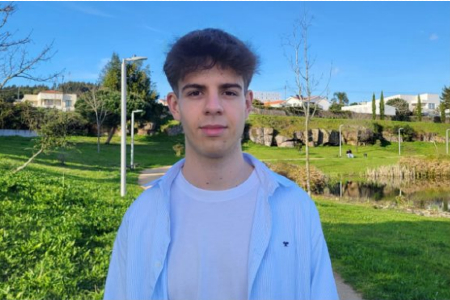The seventeenth session of Creativity Talks will feature Professor Jeffrey L. Krichmar, an expert in neurorobotics and computational neuroscience at the University of California, Irvine, as the keynote speaker, presenting “Neurorobotics: Connecting the Brain, Body, and Environment.”
The talk will take place on December the 4th 2025, at 17:30, and will be moderated by Armando Sousa (DEEC).
Abstract:
Neurorobots are robots whose control systems follow structural and dynamical aspects of the nervous system. Their artificial brains can be thoroughly probed and recorded as the robot interacts with the world. Neurorobotic design principles fall into three categories that follow natural organisms: First, they must react decisively to sensory events. Second, they must have the ability to adapt, learn and remember over their lifetime. Third, they must weigh the different and sometimes conflicting options that are crucial for completing tasks. Following these principles can not only increase our understanding of how brain responses lead to flexible behavior, but they may also lead to more intelligent systems. In this talk, I will describe the field of neurorobotics and then present neurorobot interaction case studies that focus on how neuromodulation and neurohormones can influence affect, learning, and behavior.
The talk will be broadcast online:
About the Speaker:
Jeffrey L. Krichmar received a B.S. in Computer Science in 1983 from the University of Massachusetts at Amherst, a M.S. in Computer Science from The George Washington University in 1991, and a Ph.D. in Computational Sciences and Informatics from George Mason University in 1997. He spent 15 years as a software engineer on projects ranging from the PATRIOT Missile System at the Raytheon Corporation to Air Traffic Control for the Federal Systems Division of IBM. From 1999 to 2007, he was a Senior Fellow in Theoretical Neurobiology at The Neurosciences Institute. Since 2008, he has been a Professor in the Department of Cognitive Sciences and the Department of Computer Science at the University of California, Irvine. Krichmar has over 20 years of experience designing adaptive algorithms, creating neurobiologically plausible neural networks, and constructing brain-based robots whose behavior is guided by neurobiologically inspired models. He has over 160 publications and holds 9 patents. His work has been funded by the Defense Advanced Research Projects Agency (DARPA), Intelligence Advanced Research Projects Activity (IARPA), National Science Foundation, and the Air Force Office of Scientific Research. Additionally, he has worked with industry on sponsored research contracts from Qualcomm, Northrup Grumman Corporation, and Toyota Motor North America. He is a Senior Member of IEEE and the Society for Neuroscience. He recently published a book, “Neurorobotics: Connecting the Brain, Body, and Environment” that lays out principles for designing intelligent systems.









